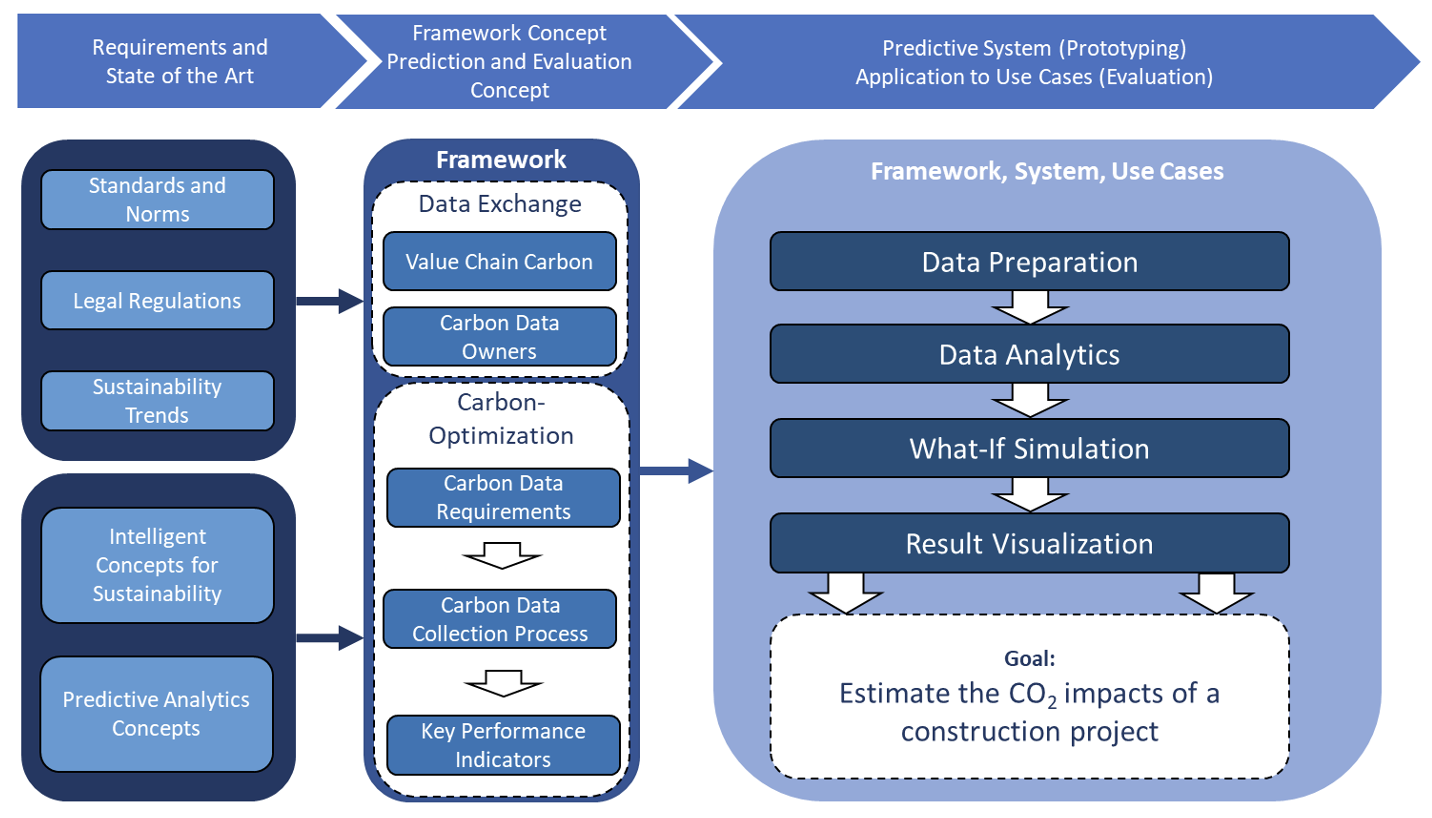Co2 footprint prediction of construction projects

In the construction industry the issue of sustainability is becoming increasingly relevant. Currently, there are three main drivers for sustainability. First, the building contractor is more and more aware of sustainability aspects, among others environmental requirements and energy consumption. Second, the legislator already only publishes tenders for public buildings, addressing sustainability aspects and wants to anchor this sustainability legally for all types of construction and renovation projects. Third, the scarcity of resources causes the prices for raw materials and industrial goods to rise more and more. Therefore, a construction project has to be analyzed holistically, considering legal regulations, influencing factors of the supply chain, the lifecycle of the building and, of course, the ideas and desires of the customer, e. g., the architect or the building owner.
The research project aims at creating a framework for predicting the CO2 footprint of a construction or renovation project in the building industry as one of the most important issues concerning the environmental impact and sustainability. This framework takes into account a variety of requirements concerning guidelines, recommendations, and sustainability criteria of CO2incurrence. To estimate the CO2 impacts of a construction project the framework uses prediction, simulation, and optimization methodologies based on machine learning and advanced data analytics.
Researcher
Partner
- REHAU New Ventures

